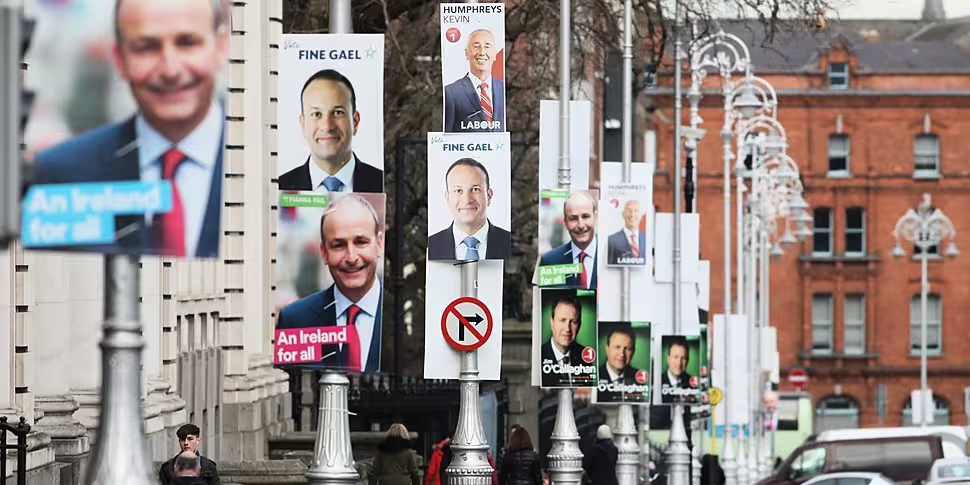Only allowing election posters to be placed in one area of a town helps the “little guy” who has a smaller budget than bigger parties.
That’s according to environmental journalist John Gibbons following the release of the Electoral Commission’s first Draft Research Programme 2024-2026.
The Commission will consider a number of reforms for elections, including putting restrictions on the use of campaign posters.
Mr Gibbons told Newstalk Breakfast election posters are useful, but “you can have a little too much of a good thing”.
“In the 2014 election, in total there were 600,000 plastic posters used for that one election,” he said.
“These things are not recyclable, they're not recoverable and they also just create this enormous clutter up and down the countryside, blocking road signs.
“When they are eventually removed, even the plastic tires are left behind.”
Election poster zones
He said he’s “all for the democracy” and is aware of the importance of campaign posters, but suggested we follow the lead of countries such as Belgium and France.
“Election postering is restricted by local authorities to certain zones,” he said.
“A big advantage in my view of this is that it means that you can't be outspent – the little guys, the independents, the small parties get space can’t be outspent by the bigger parties.”
Election visibility
Dr Adrian Kavanagh from the Maynooth University Geography Department argued, however, that restricting posters to certain areas will affect the visibility of an election.
“My issues with blanket bans, where you ban posters in certain areas, you don’t have these areas in sight and there’s no indication that there's an election on,” he said.
“If you're living in a town near Dublin, you might be all your life commuting to Dublin on trains, and in certain towns, you might not be aware that there's an election which can be problematic.”
'Inbuilt incumbent bias'
Dr Kavanagh also argued restricting election posters would not help the “little guy” as much as Mr Gibbons thinks.
“There's an inbuilt bias as well towards the best-known candidate,” he said.
“You won’t know a first-time candidate and [restricting posters] can lead to discrimination against the first-time candidate, usually women.”
'Creeping postering'
Mr Gibbons argued that first-time candidates likely don’t have the resources to put up “500 posters of yourself in the local town”.
“That's in fact likely to be the well-established candidate or one who's got the big the big party behind them,” he said.
“Something I’m noticing is politicians are using local public meetings on all kinds of topics to effectively run election posters out of season.
“You see something about housing there's something about wind farms and this enormous picture of whatever candidate that clearly has resources behind them.
“That gives them a completely unfair advantage in terms of brand recognition – if we’re tightening up elections, one thing we can do is ban that ‘creeping postering’.”









